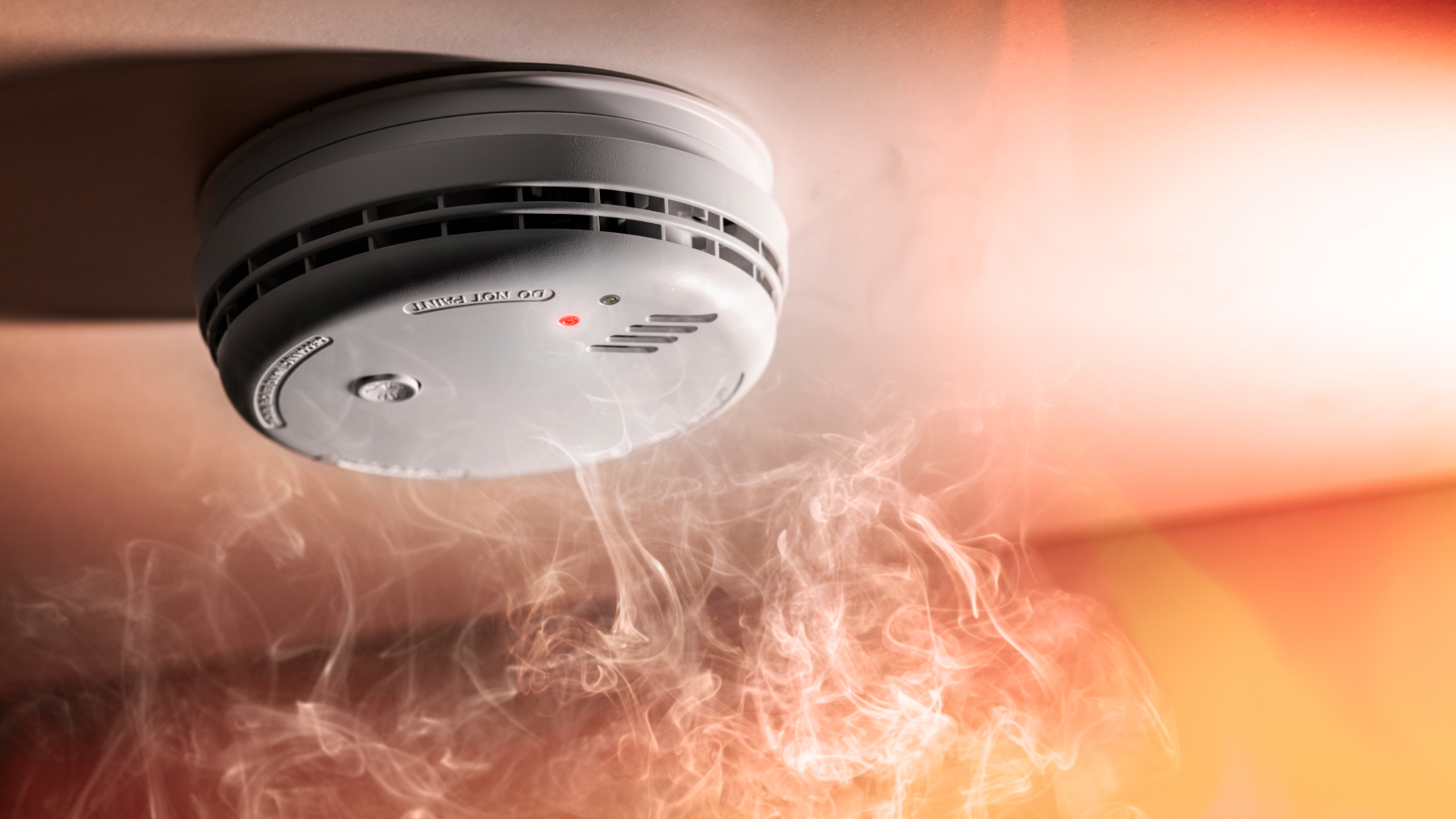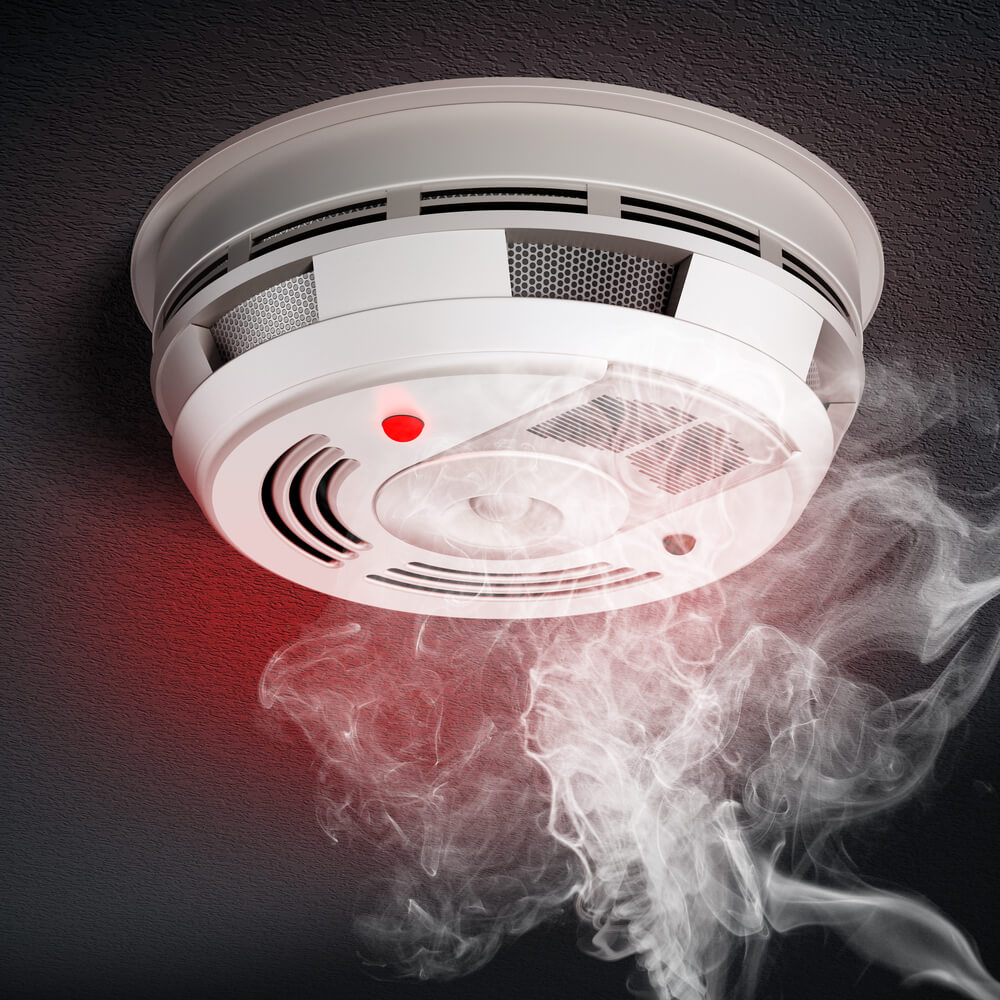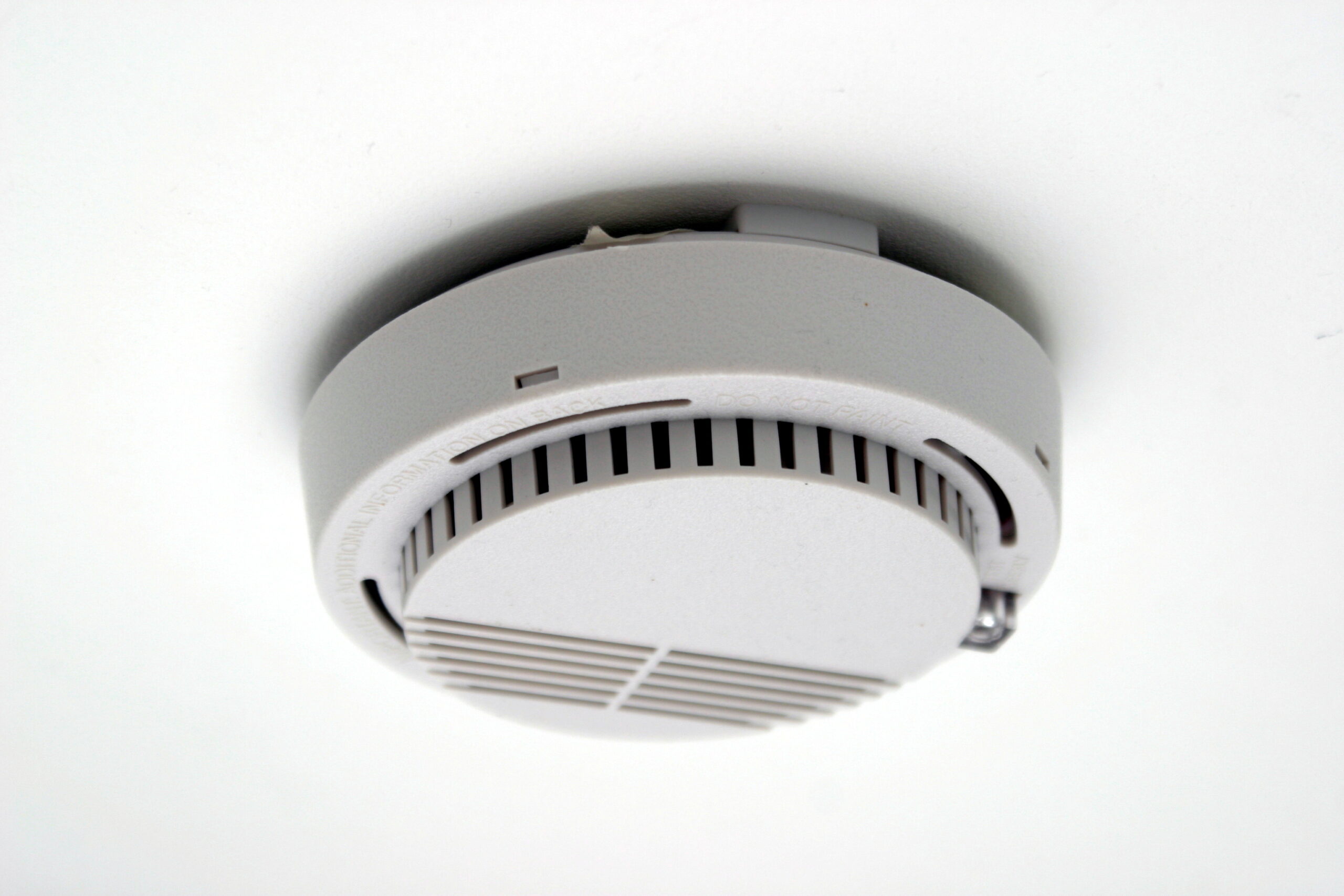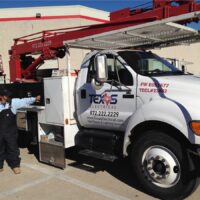A smoke detector senses smoke, providing an early warning for potential fires. It’s essential for home safety.
Smoke detectors are crucial devices for fire prevention and safety in homes and businesses. They detect smoke particles and emit an alarm to alert occupants of a potential fire, allowing for timely evacuation. Regular maintenance, including battery checks and cleaning, ensures optimal performance.
Different types, such as ionization and photoelectric detectors, cater to various needs. Ionization models detect fast-flaming fires, while photoelectric ones are better for smoldering fires. Installation on every floor and near sleeping areas maximizes protection. Investing in quality smoke detectors can save lives and property, making them an indispensable part of any safety plan.
Importance Of Smoke Detectors
Smoke detectors are essential in every home. They provide an early warning of fire, giving you precious time to escape. These small devices can save lives and protect property. Installing smoke detectors is a simple yet powerful way to ensure safety.
Life-saving Benefits
Smoke detectors can save lives. They alert you to fires even while you sleep. This early alert can be the difference between life and death. With a working smoke detector, you have a better chance of escaping a fire.
Statistics show homes with smoke detectors have fewer fatalities. It’s clear: these devices are vital. They give you the best chance of surviving a fire.
Early Fire Detection
Early fire detection is crucial. Smoke detectors sense smoke before you see flames. This early warning can help you stop a small fire from growing. It also gives you time to get out and call for help.
Smoke detectors work 24/7. They are always on alert, protecting you and your family. This constant vigilance is key to early fire detection.
| Benefit | Description |
|---|---|
| Life-Saving Alerts | Warns you of fire even when asleep. |
| 24/7 Protection | Constantly monitors for smoke. |
| Early Detection | Detects smoke before visible flames. |
To ensure your smoke detectors work:
- Test them monthly.
- Change batteries twice a year.
- Replace units every 10 years.
Investing in smoke detectors is investing in safety. They are small devices with huge benefits.

Credit: www.amazon.com
Types Of Smoke Detectors
Smoke detectors are vital for home safety. They alert you to fires. There are different types of smoke detectors. Each type has unique features.
Ionization Smoke Detectors
Ionization smoke detectors are common. They detect fast-flaming fires. These detectors have a small amount of radioactive material. This material ionizes the air in a chamber. When smoke enters, it disrupts the ionization. The alarm then sounds.
| Feature | Description |
|---|---|
| Best For | Fast-flaming fires |
| Detection Method | Ionization of air |
| Radioactive Material | Yes |
Photoelectric Smoke Detectors
Photoelectric smoke detectors are another type. They are best for detecting smoldering fires. These detectors use a light beam. When smoke enters the chamber, it scatters the light. The alarm then goes off.
| Feature | Description |
|---|---|
| Best For | Smoldering fires |
| Detection Method | Light scattering |
| Radioactive Material | No |
Choosing the right smoke detector is crucial. Consider the type of fire it detects. Both types provide important safety features. Make sure your home is equipped with the right detector.
Installation Tips
Installing a smoke detector correctly is crucial for your safety. This guide will help ensure your smoke detector works effectively. Follow these tips to place and install your smoke detectors properly.
Optimal Placement
Where you install smoke detectors matters a lot. They should be in key locations to detect smoke quickly. Here are some tips on optimal placement:
- Install smoke detectors in every bedroom.
- Place one outside each sleeping area.
- Have at least one detector on every level of your home.
- Mount detectors on the ceiling or high on the wall.
- Keep detectors away from windows and vents.
Proper placement ensures early detection and more time to evacuate.
Professional Vs. Diy Installation
Choosing between professional installation and DIY can be tough. Here are the pros and cons of each:
| Professional Installation | DIY Installation |
|---|---|
|
|
Consider your budget and skill level. A professional can give peace of mind, but DIY saves money.
Maintenance And Testing
Proper maintenance and testing of smoke detectors are crucial. They ensure your family’s safety. Regular upkeep can prevent malfunctions and save lives.
Regular Testing
Test your smoke detector at least once a month. Use the test button. This ensures it’s functioning correctly.
Here are simple steps to follow:
- Press and hold the test button.
- Wait for the alarm sound.
- If it beeps, the detector works.
- If it doesn’t, check the battery or replace the unit.
Keep a log of your testing dates. This helps you track maintenance.
Battery Replacement
Smoke detectors usually need new batteries once a year. Some models have a low-battery warning. It emits a chirping sound.
Follow these steps to replace the battery:
- Open the smoke detector cover.
- Remove the old battery.
- Insert a new battery in the correct orientation.
- Close the cover securely.
- Test the detector to ensure it’s working.
Consider using long-life batteries. They reduce the frequency of replacements.
Replace the entire smoke detector every 10 years. This ensures optimal performance.
Interconnected Smoke Detectors
Interconnected smoke detectors are a must-have in every home. They provide enhanced safety by ensuring all alarms sound simultaneously. This feature can be lifesaving, especially in large homes. Let’s dive into the benefits and options for interconnected smoke detectors.
Benefits Of Interconnection
Interconnected smoke detectors offer several benefits, making them essential.
- Whole-home alert: All alarms sound at once, ensuring everyone hears.
- Enhanced safety: Quick alerts help evacuate faster, saving lives.
- Peace of mind: Feel secure knowing your home is protected.
Wired Vs. Wireless Systems
Interconnected smoke detectors come in two types: wired and wireless.
Wired Systems:
| Pros | Cons |
|---|---|
| Reliable connection | Complex installation |
| No battery replacements | Higher cost |
Wireless Systems:
| Pros | Cons |
|---|---|
| Easy installation | Battery maintenance |
| Flexible placement | Potential signal issues |
Choose the system that fits your needs and home layout.

Credit: www.alfainsurance.com
Smart Smoke Detectors
Smart Smoke Detectors offer advanced protection for your home. They go beyond traditional smoke alarms, providing enhanced safety features and seamless integration with smart home systems.
Advanced Features
Smart Smoke Detectors come with various advanced features:
- Wi-Fi Connectivity: Connects to your home network for real-time alerts.
- Mobile Notifications: Sends alerts to your smartphone wherever you are.
- Voice Alerts: Uses voice to indicate the type of danger detected.
- Self-Testing: Automatically tests itself and alerts you if there’s an issue.
- Battery Backup: Ensures continued operation even during power outages.
Integration With Smart Home Systems
Smart Smoke Detectors easily integrate with your smart home systems:
| Smart Home System | Integration Benefits |
|---|---|
| Amazon Alexa | Receive voice alerts and control via Alexa commands. |
| Google Home | Get notifications and control through Google Assistant. |
| Apple HomeKit | Control and monitor through the Apple Home app. |
| SmartThings | Integrate with other SmartThings devices for a connected home. |
Smart Smoke Detectors enhance safety and offer peace of mind. Their integration with smart home systems makes them a valuable addition to any modern home.
Legal Requirements
Understanding the legal requirements for smoke detectors is essential. These rules ensure safety and compliance in homes and buildings. Let’s explore the key aspects under local regulations and building codes.
Local Regulations
Local regulations vary by region and city. Each area has specific rules for smoke detectors. Check your local government’s website for detailed information.
| Region | Requirement |
|---|---|
| New York | Smoke detectors in all bedrooms |
| California | Interconnected smoke detectors |
| Texas | Battery-operated smoke detectors allowed |
Following local regulations helps ensure safety and avoids penalties. Always stay updated with any changes in your area.
Building Codes
Building codes set the standards for construction and safety. They include specific requirements for smoke detectors.
- Placement: Must be in every bedroom and hallway.
- Power Source: Hardwired with battery backup.
- Interconnection: All alarms should be interconnected.
Building codes are enforced by local building departments. They ensure that new constructions meet safety standards.
Following these codes is crucial for both new builds and renovations. It ensures the safety of all occupants.
Emergency Preparedness
Being ready for emergencies is crucial, especially regarding fire safety. Smoke detectors are vital, but having a plan ensures everyone’s safety. This section covers steps to prepare and keep your family safe.
Creating An Evacuation Plan
Planning an evacuation route is essential. Here’s how to create one:
- Identify all possible exits in your home.
- Ensure all family members know these exits.
- Choose a meeting spot outside the house.
- Keep all exits clear and accessible.
- Test windows and doors to ensure they open easily.
Use a simple table to outline roles:
| Family Member | Role |
|---|---|
| Parent 1 | Check bedrooms |
| Parent 2 | Guide children |
| Child 1 | Follow parent |
| Child 2 | Follow parent |
Family Safety Drills
Practice your evacuation plan with family drills:
- Conduct a drill at least twice a year.
- Test different scenarios, like nighttime evacuations.
- Use a timer to see how fast everyone evacuates.
- Discuss any issues and improve your plan.
- Ensure everyone knows their role during the drill.
Drills make the plan familiar and improve response times. Regular practice keeps everyone prepared and safe. Smoke detectors are just one part of a broader emergency preparedness strategy.

Credit: ashbusterscharleston.com
Frequently Asked Questions
What Is A Smoke Detector?
A smoke detector is a device that senses smoke. It alerts you to potential fire hazards. It’s essential for home safety.
How Does A Smoke Detector Work?
A smoke detector detects smoke particles in the air. It then sounds an alarm. This warns you of possible fire.
Where Should Smoke Detectors Be Placed?
Place smoke detectors in every bedroom. Also, install them in hallways and on each floor. This ensures maximum safety.
How Often Should You Test Smoke Detectors?
Test smoke detectors monthly. Press the test button to ensure they work. Replace batteries at least once a year.
Conclusion
Ensuring your home has a reliable smoke detector is crucial for safety. Regular maintenance and timely battery changes are essential. Choose a high-quality smoke detector to protect your family. Stay vigilant and prioritize safety. A small investment in a smoke detector can save lives and property.
Make safety a priority today.




